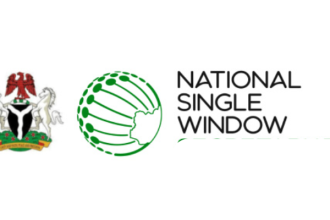Nigeria and the Caribbean nation of St. Kitts and Nevis recently entered into a reciprocal visa-free travel agreement, allowing citizens of both countries to visit each other for up to 90 days without the need for a visa.
This arrangement, which came into effect in this September 2025, marks the first time Nigeria has extended such privileges to a country outside Africa.
The agreement is widely seen as a strategic move to deepen ties between Africa and the Caribbean, with implications for tourism, trade, and cultural exchange.
Read also:St. Kitts and Nevis welcomes a major turnout of African investors at Investment Gateway Summit
Entry requirements and travel implications
The visa waiver follows a series of high-level engagements between President Bola Tinubu and Terrance Drew, prime minister of St. Kitts and Nevis.
Their meetings held earlier this year in Abuja and later in Saint Lucia, laid the groundwork for broader cooperation with the Organisation of Eastern Caribbean states
The waiver applies to holders of ordinary, official, and diplomatic passports, although travellers are still required to meet standard entry conditions. These include presenting a valid passport, proof of onward or return travel, and completing arrival documentation upon entry.
Travel information to St. Kitts and Nevis
Getting a flight to St. Kitts & Nevis from Nigeria can be challenging for Nigerian passport holders, as it typically requires two or three layovers or stopovers in Europe that necessitate Schengen visas, or a layover in North America that requires transit visas.
Also, direct flights between Nigeria and St. Kitts and Nevis are rare.
However, a recent charter flight from Abuja to Basseterre marked a historic milestone, establishing the first direct air link between West Africa and the Caribbean nation.
Air Peace also made headlines in June this year with a 10-hour non-stop flight earlier this year, signalling growing interest in bridging the two regions.
For those planning on visiting St. Kitts and Nevis (SKN), here’s what you need to know:
St. Kitts & Nevis uses the Eastern Caribbean Dollar (EC$ or XCD), pegged at a fixed rate to the USD. As of today, 1 EC$ is around N549.
Flights from Lagos (LOS) to Basseterre (SKB) averages $1,175–$1,852 (about N1.8m–N2.9m at current rates), depending on the season and airline.
For a single person, the monthly expenses are around EC$3,500–5,000 (around N1.9m–2.8m), covering rent, food, and basics.
Cultural exchange and shared celebrations
Travellers from Nigeria can consider visiting St. Kitts in December and January during the Sugar Mas carnival, while Nevis can be visited in late July for Culturama.
These festivals, are similar to Nigeria’s own cultural events such as the Calabar Carnival and the Osun-Osogbo Festival, and involve music, dance and masquerade.
Read also: Nigerian investors choosing St. Kitts and Nevis as their second home: Report
The best time to visit the islands is during the dry season, which runs from December to April, coinciding with peak tourist activity and major cultural events.
Citizenship, residency and long-stay options
For Nigerians considering longer-term opportunities, St. Kitts and Nevis has a popular and established Citizenship by Investment programme.
This scheme allows individuals to obtain citizenship through financial contributions to government-approved projects or real estate investments.
When you acquire citizenship under the St. Kitts and Nevis citizenship program, you and your family enjoy full citizenship for life, which can be passed on to future generations by descent.
Applicants can include a spouse, children under 26, and parents aged 55 and over, as well as to add dependents after citizenship has been granted to the main applicant.
St. Kitts and Nevis is a member of the Commonwealth, which entitles its citizens to certain privileges in the UK and other Commonwealth countries
There is no minimum stay required.
Requirements
To qualify for citizenship, the main applicant must be over 18 years of age, meet the application requirements, and select one of the following options:
Sustainable Island State Contribution (SISC)
A non-refundable contribution of $250,000 to SISC for an applicant and up to three qualifying dependents
$50,000 for each additional qualifying dependent over 18
$25,000 for each additional qualifying dependent under 18
A minimum non-refundable contribution of $250,000 to a public benefit unit in an Approved Public Benefit Project
The purchase of real estate with a minimum value of $325,000 from an approved real estate development, or a minimum of $325,000 for a condominium unit or $600,000 for a single-family private dwelling. The real estate purchased under both options can be resold after seven years under certain conditions
Read also:
The benefits include visa-free access to over 150 countries, favourable tax policies, and the option of dual nationality. However, such pathways require substantial investment and legal guidance.
Ngozi Ekugo
Ngozi Ekugo is a Snr. Correspondent/ analyst at Businessday. She has worked across various sectors, and notably had a brief stinct at Goldman Sachs, London.
She holds an MSc Management from the University Hertfordshire, a Bachelor of Arts from the University of Lagos and is an alumna of Queen’s college.
She is also an associate member of the Chartered Institute of Personnel Management (CIPM).


















